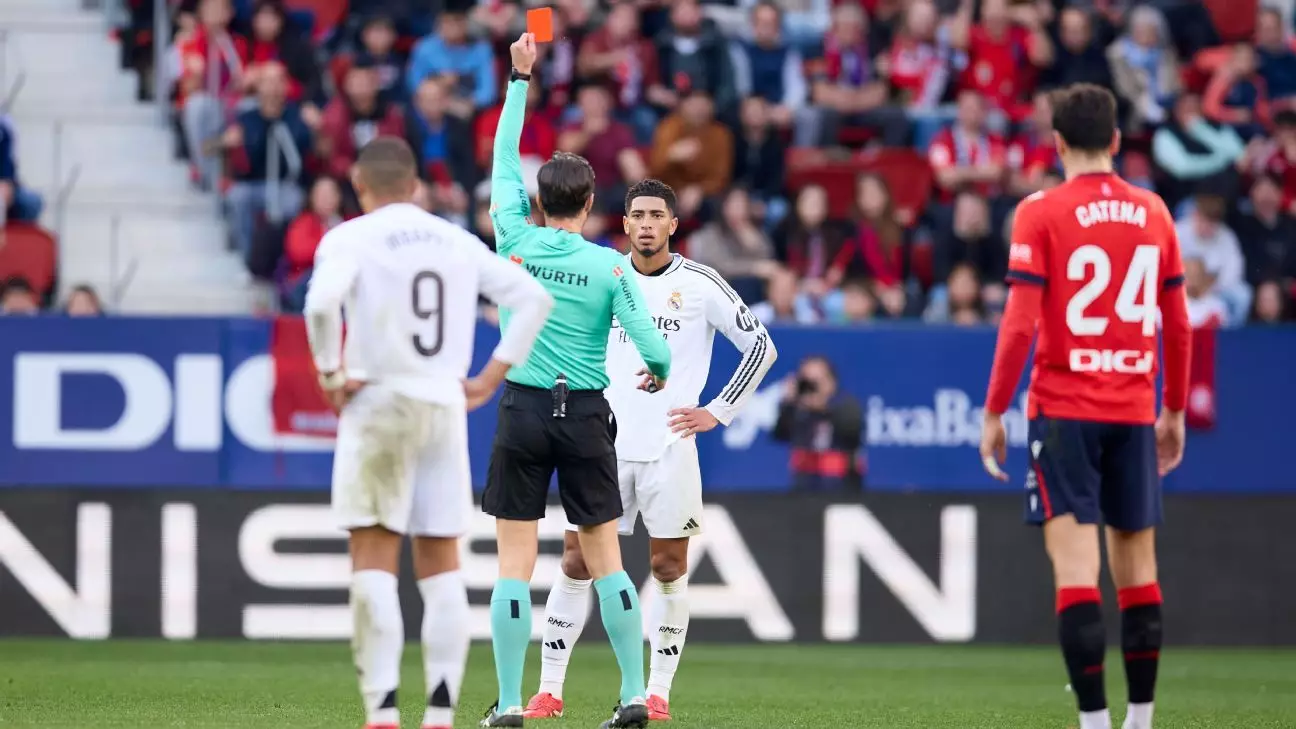In the realm of professional football, the impact of officiating can often overshadow the beauty of the game. Carlo Ancelotti, the seasoned manager of Real Madrid, recently voiced his preference for Champions League referees over those officiating in La Liga. This comes amid a torrent of controversy surrounding officiating decisions in the Spanish league. As his team gears up to face Manchester City in a crucial UEFA Champions League clash, Ancelotti’s insights offer a glimpse into a broader debate concerning the quality and accountability of referees within the two different contexts of football.
Ancelotti’s comments highlight a perceived disparity between the officiating standards in the Champions League and La Liga. He noted that Champions League referees tend to create less controversy and wield VAR (Video Assistant Referee) technology in a more streamlined manner. According to him, VAR interventions occur only when absolutely necessary in the Champions League, contrasting significantly with La Liga, where such interventions can be frequent and contentious. The presence of top-tier referees officiating during continental matches supposedly raises the standard, ensuring that decisions are made with the highest level of expertise. This situation underlines the gripes many La Liga teams, including Real Madrid, have with the current officiating climate.
Transcending the technicalities of match refereeing, Ancelotti’s observations reflect an acute awareness of the psychological impact that officiating can have on players and teams. Confidence in the integrity of officiating can fundamentally alter a team’s approach to a match. The added pressure of performing under referees that are perceived as less competent or impartial can lead to an array of errors, both tactical and mental, for players.
Real Madrid has found itself embroiled in a series of controversial matches recently, leading to questions about the consistency and fairness of officiating in La Liga. Three consecutive games—each marked by contentious decisions—have fueled frustration among players and staff alike. A defeat to Espanyol, followed by disappointing draws against Atlético Madrid and Osasuna, has left the club reeling from questionable refereeing that they feel has hampered their performance. Ancelotti’s open admission of disbelief regarding certain decisions underscores a growing trend: clubs are increasingly vocal about their displeasure with officiating, which ultimately points to deeper systemic issues within the league.
After being dealt a series of unfavorable calls, including the controversial sending-off of star midfielder Jude Bellingham, the need for clarity and reform in refereeing has become more pressing than ever. Such circumstances create a precarious environment for players, who ought to focus solely on their performance while bearing the psychological burden of feeling wronged by officiating decisions. Thus, club management is compelled to seek meaningful dialogue with refereeing authorities to address these grievances, as they have done by meeting with Spanish refereeing bosses to review specific game incidents.
Despite the ongoing controversy, Ancelotti remains hopeful ahead of the second leg of the Champions League knockout tie against Manchester City. The resilience exhibited by his team has provided a glimmer of optimism, especially following the first-leg victory at the Etihad Stadium, where Bellingham’s last-minute goal granted them a slight advantage. Ancelotti’s diplomatic acknowledgment of this advantage serves as a reminder that, while refereeing plays a role in the outcome of matches, it is ultimately the players’ performance that will propel the team forward.
Moreover, Ancelotti’s firm rebuttal to Pep Guardiola’s claim that City holds a mere “1% chance” of advancing speaks volumes about the mind games synonymous with high-stakes football. It is crucial in competitive environments to maintain both confidence and caution, something Real Madrid intends to achieve as they strategize for the upcoming encounter.
While Ancelotti’s comments reflect a significant concern surrounding the current state of Spanish officiating, they also serve as a rallying point for advocates of improved standards in the game. The gap between the perceived quality of Champions League and La Liga refereeing needs prompt investigation and potential reform. As football evolves, so too must the systems that govern it, ensuring that fairness and integrity remain at the heart of the sport. As Real Madrid prepares to face Manchester City, the unfolding matches will not just impact their standing in competitions but could also contribute to an ongoing dialogue about the importance of high-quality officiating across all levels of football.

